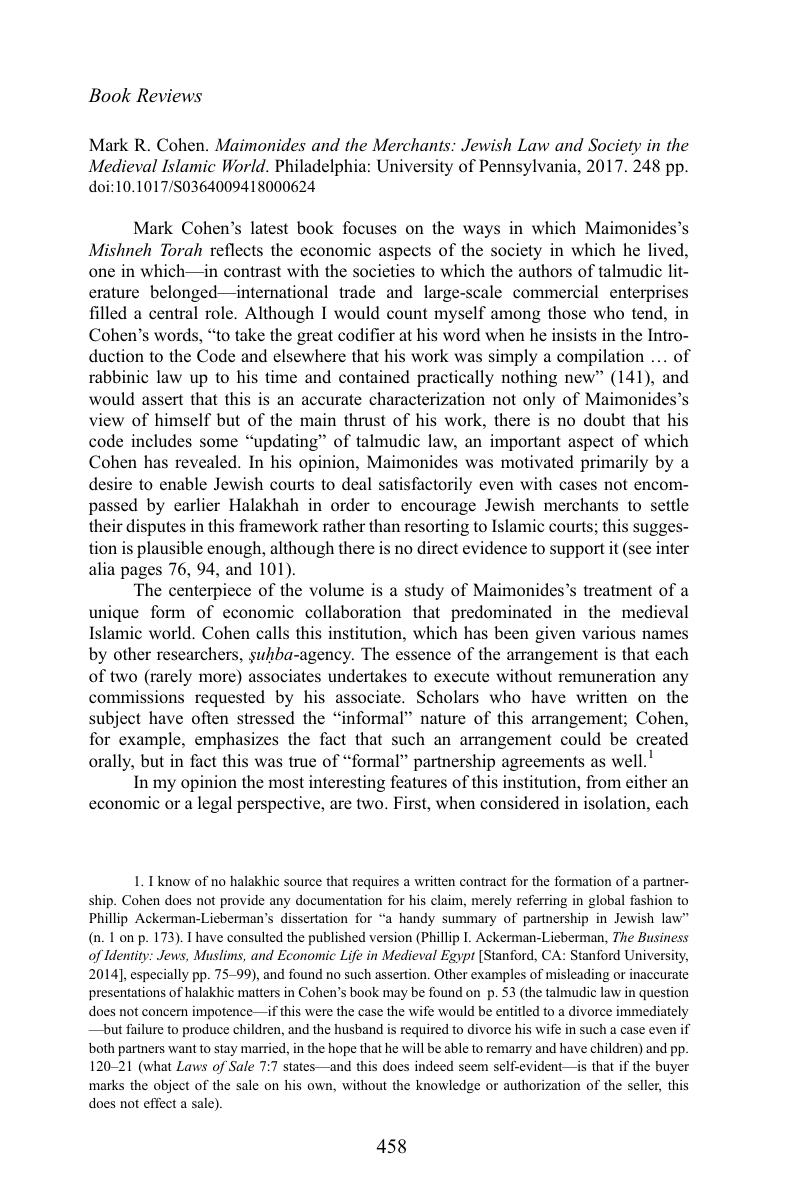No CrossRef data available.
Article contents
Mark R. Cohen. Maimonides and the Merchants: Jewish Law and Society in the Medieval Islamic World. Philadelphia: University of Pennsylvania, 2017. 248 pp.
Published online by Cambridge University Press: 30 November 2018
Abstract

- Type
- Book Reviews: Medieval and Early Modern Eras
- Information
- Copyright
- Copyright © Association for Jewish Studies 2018
References
1. I know of no halakhic source that requires a written contract for the formation of a partnership. Cohen does not provide any documentation for his claim, merely referring in global fashion to Phillip Ackerman-Lieberman's dissertation for “a handy summary of partnership in Jewish law” (n. 1 on p. 173). I have consulted the published version (Ackerman-Lieberman, Phillip I., The Business of Identity: Jews, Muslims, and Economic Life in Medieval Egypt [Stanford, CA: Stanford University, 2014], especially pp. 75–99CrossRefGoogle Scholar), and found no such assertion. Other examples of misleading or inaccurate presentations of halakhic matters in Cohen's book may be found on p. 53 (the talmudic law in question does not concern impotence—if this were the case the wife would be entitled to a divorce immediately—but failure to produce children, and the husband is required to divorce his wife in such a case even if both partners want to stay married, in the hope that he will be able to remarry and have children) and pp. 120–21 (what Laws of Sale 7:7 states—and this does indeed seem self-evident—is that if the buyer marks the object of the sale on his own, without the knowledge or authorization of the seller, this does not effect a sale).
2. The relevant passage from Saʿadiah is translated by Cohen on p. 95 and the Maimonidean source on p. 93.
3. Although Cohen asserts otherwise in the text (96), in the accompanying note (n. 17 on p. 189) he raises the possibility that Maimonides actually accepted Saʿadiah's position. However, the source to which Cohen refers in this note (Laws of Agents and Partners 2:9) concerns “any agent” and not specifically one who is compensated in any way.
4. See Cohen's summary on pp. 141–42 and detailed discussions on pp. 38–40, 122–24, with additional examples especially in chapter 3. I am not convinced that Maimonides's decision to mention “a leaf” as a possible material on which a legal document could be written needs to be attributed to a desire to “free up” the word neyar, which in earlier sources referred to papyrus, to refer to paper.




